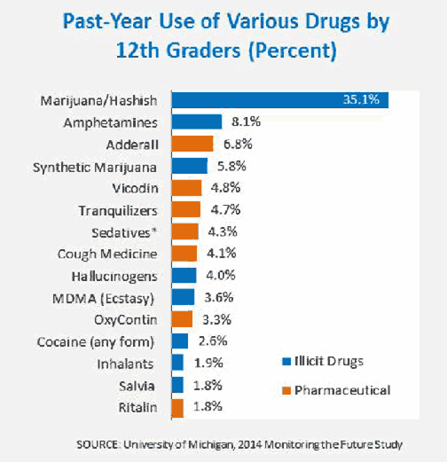The Impressive Benefits of Quitting Marijuana
There’s no denying the fact that marijuana use is becoming “normalized” in the United States. This comes after more than 20 states legalized marijuana and its products for medical use and four states plus the District of Columbia legalized recreational use. Even if they’re completely false, the messages sent by this legislation include “marijuana is medicine” and “marijuana is harmless.”

So it’s little wonder that marijuana is the most common drug used by our youth. What these teens are missing is an understanding of the many kinds of harm resulting from using marijuana, especially heavy use. However, because of the body’s wonderful ability to heal itself, most will experience improvements if the habit is stopped.
IMPROVEMENTS POSSIBLE WHEN YOU STOP USING MARIJUANA
Based on the harm typically experienced by marijuana users, here’s the improvements one might see when they stop:
- Lower chance of lung problems
- Reduced or eliminated anxiety, panic attacks, paranoia and hallucinations
- Reduced risk of triggering psychotic episodes
- Better chance of overall life satisfaction and better physical and mental health
- Improved and correct perceptions of time and space
- Improved mood, less depression
- Greater chance of avoiding traffic accidents and accidental injuries
- Fewer job injuries, less absenteeism, longer duration on jobs
- Increased chance of higher income
- More likelihood of higher grades and achievement of educational goals
- Money saved when not spent on drugs
- Improved memory
- Improved IQ
- Better ability to focus on tasks and control one’s attention
- Less stress on one’s heart and reduced risk of heart attack
- Better chance of healthier, full-sized babies
- Fewer relationship problems
A person might be able to recover IQ lost while smoking marijuana. One study revealed that heavy users who started smoking in their teens lost an average of eight IQ points when they were examined between the ages of 18 and 38. However, the study also found that some people never recovered this lost IQ after they quit.
Reduced Concern by Teens Results in More Use
By 2014, only about a third of high school seniors thought that regular use of marijuana was risky. For comparison, in 1991, nearly 79% felt this way. The current lack of concern is reflected in the number of 18-year-olds using marijuana every day. In 2014, that was 7% of them. For those aged 21 or 22, it was 8%. Daily smokers are very likely to experience the most damaging effects of marijuana, are most likely to meet all the criteria of addiction and are definitely likely to need drug rehab to quit.
It’s worth noting that in 1978, only 35% of high school seniors thought regular use of marijuana was risky. Over the next 13 years, that number surged to 79%, proving that it’s possible to educate youth to change their opinions.
REFERENCES
https://www.drugabuse.gov/publications/drugfacts/prescription-over-counter-medications
http://monitoringthefuture.org/pubs/monographs/mtf-vol2_2014.pdf
http://learnaboutmarijuanawa.org/factsheets/adolescents.htm
http://marijuanacentral.com/how-long-does-marijuana-stay-in-your-system.html


